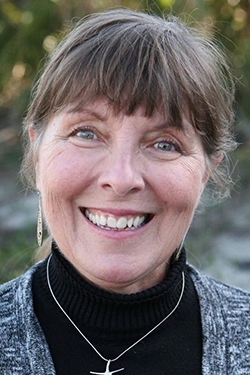Summer is here. COVID cases are down. Vaccines are up. It’s time to venture out. It feels like a ravaging storm has passed. As survivors, we begin the hesitant, fearful peering through the cracks of what remains. We emerge from shelter. Is everyone safe and accounted for? Is the house still standing? We take stock. Then we move forward, free to get back “to normal.” Yet, after a storm, a cloud of a particular grayness tightens the chest. The sound of a lazy freight train moving through town dries the throat. A breeze, beyond gentle, prickles the hair on the arms.
And so goes the recovery from a year of pandemic living. Our storm has passed. We’re so excited to see friends and family, to dine at our favorite restaurants, take in a ballgame, a concert, a church service. The thought of traveling evokes a yearning we didn’t know we had. We talk of little else these days.
But the enormity of it all! The fact that we have lived through a major period of global history… Great novels and Oscar-winning movies are created from this. We’ve lived through a pandemic. A pandemic. Think about it. For hundreds of years beyond, this will be known as the Great COVID Pandemic of 2020. And we’re the survivors.
Responses to Trauma
Our storm has passed. Yet, we shrink ever so slightly when an acquaintance leans forward to speak. A poorly covered cough sets up an impulse to flee. The removal of a mask, to eat that meal we’ve missed so much, becomes an act of courage. The social time we’ve craved tires us. A large group of people milling about results in sensory overload. The immediate plans for a trip to the beach, delayed after second thoughts. Maybe later.
These are natural responses to trauma: hypervigilance and vague anxiety. What was once normal takes on a veneer of threat. It’ll pass as the brain moves away from the fight-or-flight instinct that crisis necessitates. As we move out of survival mode, we’ll likely begin to have feelings—feelings that had been covered in just the right amount of numbness to keep us on autopilot, moving through the days we weren’t sure would end.
What will we mourn?
Part of that process began during these recent months of anniversary reflections. Mine started in early March: the “year ago this time” statements, laden with memory, ripe with feelings. Our last travel in January 2020 is a precious keepsake of life “before.” Like a pressed flower of memory, I recalled my last social outing—the joy of rehearsing with Morton Civic Chorus, unaware the world was about to change, that we wouldn’t be singing in May. A couple days after, my grandson’s four-year-old birthday party was cancelled, just to be cautious. He will still tell you, if asked, that COVID ruined his birthday party. Then the slow slide into a two-week shutdown that would become an entire year.
I remember my naivete about those two weeks, looking for the blessings, the silver linings of this disruption. We’re being forced to slow down, reconnect with our little families. That can’t be a bad thing, right? I crocheted an afghan and did jigsaw puzzles. I binge-watched Schitt’s Creek and laughed ‘til I cried. I read books and baked sourdough. I enabled my husband’s chocolate chip cookie addiction. We bought a PS4 and played golf. We played board games and card games and drank too much wine.
But then, it went on and on and on. We watched the news, the poignant scenes of Italians singing from balconies, the overwhelmed hospital systems, the makeshift morgues. At first, no, this couldn’t happen here. Then slowly it started to dawn on America—it’s coming for us. And come it did.
And it took people from us. In a horrible, unthinkable way. Alone, without touch or whispered words. Loved ones were left to grieve without ritual, without community. And we grieved for them. It eventually touched all of us. We may have stayed disease-free or not, but every one of us has a story of a neighbor or friend’s desperate illness or devastating loss.
Time to Reflect and Feel
We all lost a year. We’ve each had our own brand of grief—universal in many ways, yet achingly unique. It happened insidiously, like the frog in a pot of water that slowly heats up. We gradually adapted to the loss of human contact, grocery aisle chats, hugs, people noise, shoulders brushing on a crowded street, traffic, live music and sports. When did it become real to you? What cancellations hit you like a slap in the forehead and said, “This is really happening!”
What did you lose? And what did you learn?
Don’t scoff at your feelings if you were fortunate enough to stay healthy and relatively comfortable. I encourage you to take time to honor what you’ve lost, what you missed. It will soften you, heal you, and leave you a gentler human. This year changed us in subtle ways we may only see as time passes. Take time to reflect, to feel. Try journaling. Talk about it. Hold on to any good that came from it. And mourn what you have lost.PM
Victoria Mitchell, RN, LCSW is a retired psychotherapist with over 35 years of experience helping patients in the Peoria area deal with depression, anxiety, grief and trauma. For more information, visit victoriamitchellauthor.com.




